Writing A Personal Narrative Episode 4
The landscape of animated television shows has shifted dramatically since 1989, when The Simpsons debuted. Perhaps the most significant change, though, is the sheer breadth of animated programming currently on the air. These shows were once something of an anomaly, but now television has become a cartoony utopia–with room for wildly divergent tones all around. Amazingly enough, the show that made television safe for this kaleidoscopic range of styles is still on the air all these years later.
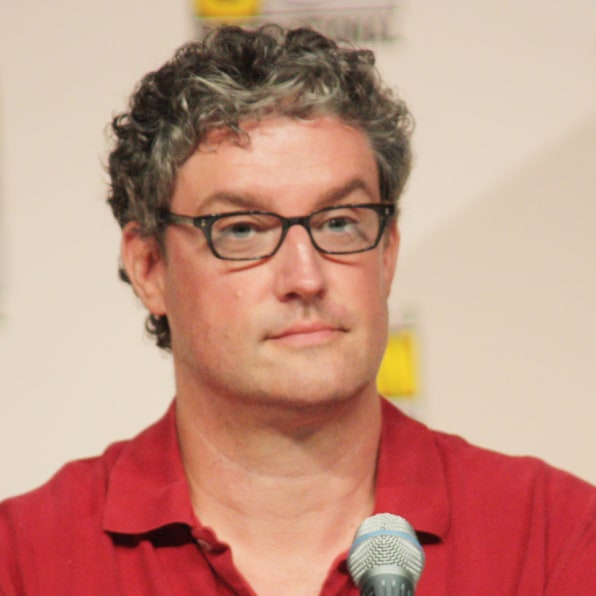
The Simpsons is unique among cartoons, television shows, and entertainment as a whole. It's a sitcom about a nuclear family who attends church each week, but it's also one of the most subversive programs to ever grace TV screens. Like any long-running institution, naysayers have been decrying the show's newer output for years and years, yet The Simpsons is still popular. (And it's certainly inspired its share of comedies along the way). Although the continuity on the show is flexible, and the characters never age, one thing that has remained consistent through almost its whole run is writer/producer Al Jean.
Along with comedy partner Mike Reiss, Al Jean was the first writer hired for The Simpsons, when the show branched out from its humble beginnings as a bit on The Tracey Ullman Show. He and Reiss remained on the show for years, ascending to the position of co-showrunners, before leaving to start their own primetime cartoon, The Critic, featuring the voice of Jon Lovitz. A few years later, Jean returned to The Simpsons, where he has remained ever since–most of the time, as showrunner. He was also one of those entrusted with writing and producing the well-received Simpsons Movie in 2007.
Considering his key contributions when the show was first finding its rhythms, as well his work with the current incarnation, perhaps nobody is more familiar with the writing on The Simpsons than Al Jean. Recently, the longtime overseer of Springfield shared with Co.Create his insights into how to write a Simpsons episode that won't make viewers say, "D'oh!"
Writing For the Character, Not the Joke
Whenever you put something into a script, no matter how funny, consider if it is something the character would actually do. When The Simpsons works, it is because people believe these animated characters are "real."
Breaking Lots of Stories At Once
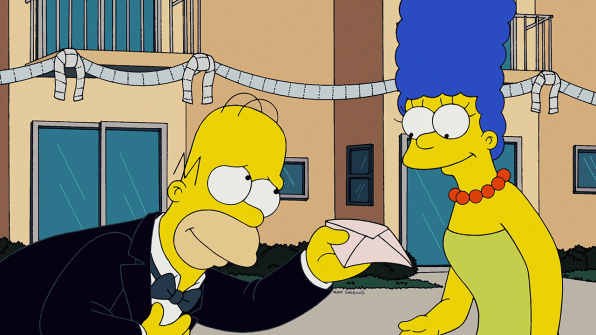
We have an annual retreat with Jim [L. Brooks] and Matt [Groening] where basic ideas are pitched out and approved. At this point, coming up with a premise is the most difficult part of writing an episode. Often, we take another day with the writer to add jokes, fill in gaps, etc. Then the writer goes off to do the first draft. This process has changed very little over the years: the number of writers has increased, and the number of stories we haven't done has decreased.
No Formula
We like to surprise the viewer, and movie parodies and flashbacks are often good devices, but we never go into a script with specific element quotas. We just try to tell a human story in clever animated fashion.
Keeping It Real-ish
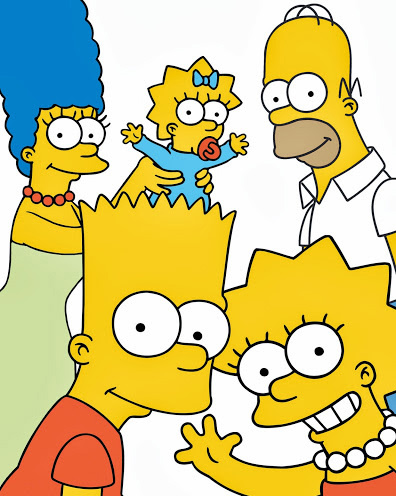
We have an elastic continuity–otherwise Bart would be 35 years old. We do generally act as if what was seen on past episodes–except on Halloween episodes–has occurred in the characters' lives. We generally try to avoid surrealism, except in the imagination, although I'm sure you can easily come up with a thousand counter-examples. We also consider character and taste, although the boundaries for the latter have widened considerably since we came on the air.
Comedy By Committee: The Table Read
Once there's a script, which has been rewritten many times by the staff, we do a table read. Mostly the cast just reads, but there is some ad libbing, which can make it in. We rewrite based on what works at the read. Writers put visuals in the first drafts, but I generally think a lot of the [throwaway gags] come in most often after the table read. We try to avoid lengthy stage directions that don't seem funny read aloud, but these can look great when executed.
The Script Is An Evolving Thing
Everything changes between the pitch and the final draft. I've told a true story before about a joke we did years ago about the Soviet Union–by the time the show was ready to air, the Soviet Union no longer existed.
Character Rotation
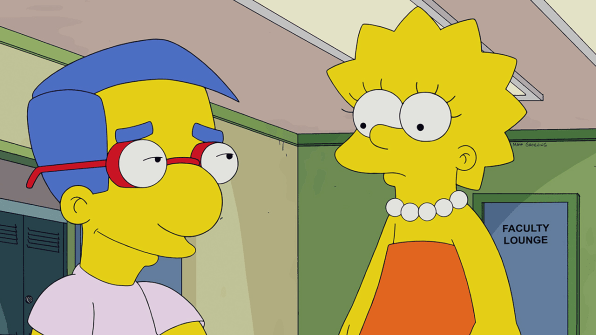
We always try to have at least one of the two main plots center on a member of the Simpson family. Ideally, stories should focus on a human emotion as well as being funny. Otherwise there are no guidelines or quotas at all for how often side characters get their own A or B story.
Ixnay on Random Cutaways
We did quite a few [random cutaways] in season four (and on The Critic) but as they have been widely used by other shows (both animated and not) we have done fewer, as we feel the idea is not as fresh as it was.
Aim For What's Timeless
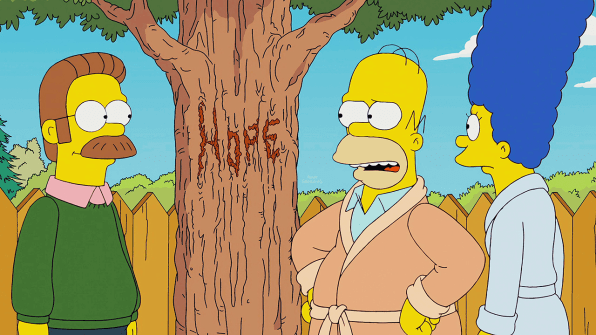
We do make pop references, but I like to think of what the viewer 10 or 20 years down the road will understand. Also, we have an eight month production schedule so we are less "of the moment" than, say, South Park.
Writing A Personal Narrative Episode 4
Source: https://www.fastcompany.com/3016324/how-to-write-a-simpsons-episode-according-to-original-show-writer-al-jean
Posted by: hopkinshodauld.blogspot.com

0 Response to "Writing A Personal Narrative Episode 4"
Post a Comment